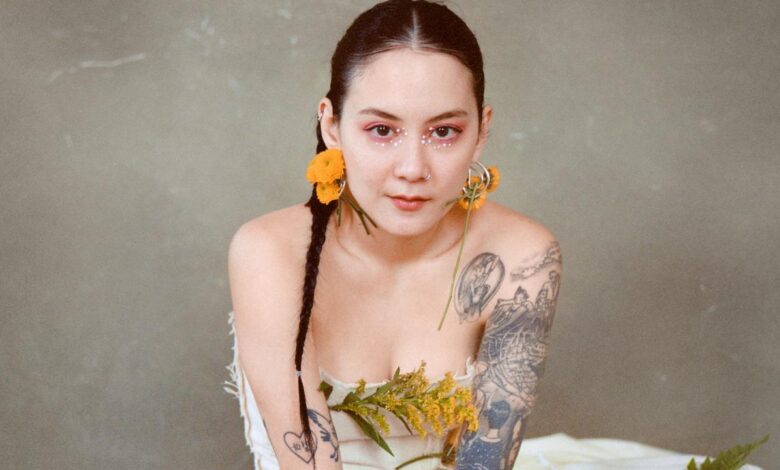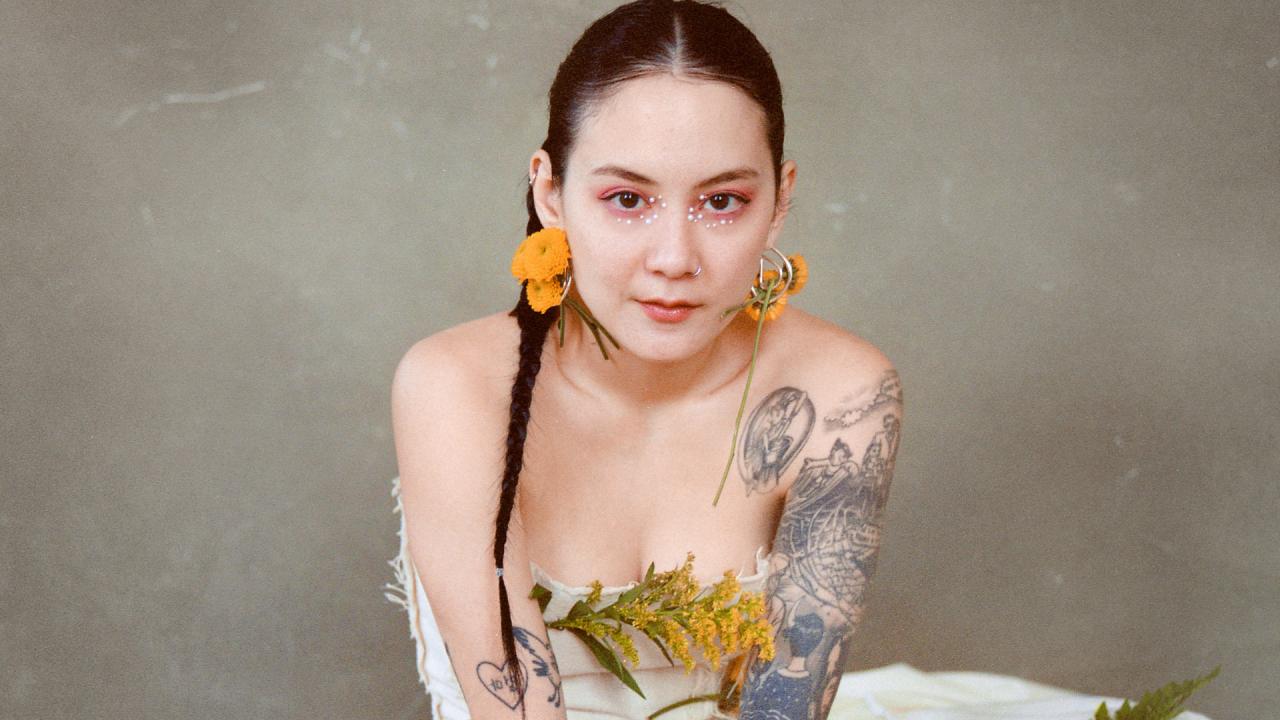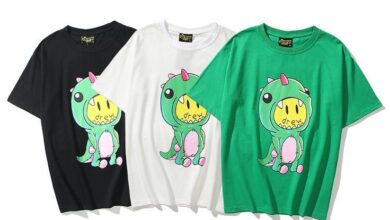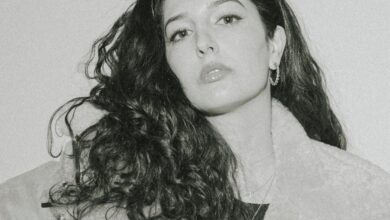
Michelle Zauner for melancholy brunettes japanese breakfast interview delves into the captivating world of the artist, exploring her music, writing, and personal experiences. The interview provides insights into the meaning behind “Melancholy Brunettes” and how it connects to Zauner’s creative process. We’ll examine the themes of melancholy and identity within her work, drawing on the interview context and her musical project, Japanese Breakfast.
This deep dive unpacks the interview’s key questions and Zauner’s responses, highlighting her perspectives on Japanese Breakfast and the creative journey behind it. We’ll also analyze the visual representation of melancholy in her work, exploring how images and artistic styles connect to her artistic identity and the interview’s themes.
Introduction to Michelle Zauner

Michelle Zauner, known professionally as Japanese Breakfast, is a multifaceted artist whose career spans music, writing, and visual arts. Her work often explores themes of personal growth, cultural identity, and the complexities of human experience. Beyond her artistic achievements, Zauner’s journey is a compelling narrative of resilience and self-discovery.Zauner’s artistic expression encompasses a unique blend of introspective songwriting, evocative prose, and visual storytelling.
Her work resonates deeply with audiences seeking authenticity and a profound connection to the human condition. Her exploration of melancholy themes is woven seamlessly into her artistic fabric, adding layers of depth and emotional resonance to her creations.
Biography and Career Highlights
Michelle Zauner was born in 1987. Early in her career, Zauner’s artistic expressions were primarily through music. Her band, Japanese Breakfast, gained significant traction in the independent music scene, with critically acclaimed albums that garnered widespread attention. Zauner’s music often blends elements of indie pop, folk, and experimental sounds, creating a distinct and recognizable style. Her exploration of emotional vulnerability and introspection is a key component of her artistic identity.
Beyond her music, Zauner’s literary endeavors have also earned recognition. Her writing, whether in her personal essays or collaborations, often delves into similar themes as her musical output. The integration of these creative outlets is central to her artistic identity.
Artistic Expressions
Zauner’s creative output encompasses a diverse range of mediums. Her music, under the moniker Japanese Breakfast, has become a cornerstone of her artistic identity. The band’s unique sound, blending elements of indie pop, folk, and experimental sounds, is characterized by Zauner’s introspective lyrics and emotive vocals. Beyond music, Zauner’s literary contributions include insightful personal essays and engaging collaborations, demonstrating a remarkable versatility in storytelling.
Connection to Melancholy Themes
A recurring motif in Zauner’s work is the exploration of melancholy. This often manifests in her music, where introspective lyrics and evocative melodies capture a range of emotions, including sadness, nostalgia, and longing. Her exploration of these themes isn’t simply about dwelling on the negative, but rather about using them as tools to understand the full spectrum of human experience.
She has described the melancholic in her work as a way of expressing the complexities of emotions and experiences, highlighting both the pain and beauty of the human condition.
Cultural Background and Influence
Zauner’s Korean and American background has deeply shaped her artistic perspective. Her music often incorporates cultural references, reflecting a conscious engagement with her heritage. Furthermore, her upbringing likely played a significant role in her unique worldview, as well as her distinct and deeply personal approach to her artistic creations.
Engagement with Japanese Culture
Zauner’s artistic moniker, Japanese Breakfast, hints at her deep connection to Japanese culture. This connection likely stems from her conscious decision to use the moniker, drawing a parallel to her creative approach. While specific details regarding the extent of this connection are not readily available, her use of the name suggests a deep appreciation and perhaps a deliberate integration of Japanese aesthetics and themes into her work.
The “Melancholy Brunettes” Concept
Michelle Zauner’s work, particularly her music and writing, often explores themes of introspection, resilience, and the complexities of identity. The term “Melancholy Brunettes” appears as a recurring motif, hinting at a deeper, more nuanced understanding of these concepts. It’s not merely a description but a framework through which Zauner examines personal and societal experiences.The term “Melancholy Brunettes” suggests a specific aesthetic and emotional state.
Michelle Zauner’s interview for “Melancholy Brunettes” about the Japanese breakfast was fascinating. It reminded me a lot of the behind-the-scenes energy around fashion drops, like Meghann Fahy’s drop premiere diary. Ultimately, both experiences offer a glimpse into the creative process and the unique personalities driving these trends. I’m really intrigued by Zauner’s approach to storytelling and the interview.
It evokes a sense of quiet contemplation, perhaps even a touch of sadness or longing, often associated with women. This is not a simple categorization but a complex exploration of female experiences. Zauner uses this framework to draw attention to the shared struggles and perspectives often overlooked in mainstream narratives.
Meaning and Significance of the Term
The term “Melancholy Brunettes” is more than just a description of hair color; it represents a deeper exploration of a particular emotional and aesthetic landscape. It’s a symbolic representation of a specific emotional state and aesthetic, and is often tied to a sense of introspection, resilience, and the complexities of female identity. It’s a framework for understanding the shared struggles and perspectives often overlooked in mainstream narratives.
Contextual Understanding in Zauner’s Work
In Zauner’s work, the “Melancholy Brunettes” concept often appears intertwined with themes of personal struggles, cultural identity, and the search for self-discovery. This is reflected in her music, where the emotional depth and introspective lyrics resonate with the concept. Her narratives frequently depict the internal conflicts and societal pressures faced by women. These experiences are often characterized by a quiet contemplation, perhaps even a touch of sadness or longing, and these feelings are often linked to the aesthetic representation of brunettes.
Just finished watching Michelle Zauner’s interview for “Melancholy Brunettes” and the Japanese breakfast segment was fascinating. It got me thinking about how relationships can sometimes mirror unexpected cultural experiences, making it crucial to learn how to spot red flags early on. Understanding those subtle cues, like how to spot red flags in a relationship early on , can help navigate any kind of connection, be it a personal one or a cultural one, like the unique blend of traditions in that Japanese breakfast interview.
Hopefully, this helps viewers gain insights into her perspective and avoid some potential pitfalls, too.
Cultural and Social Connotations
The term “Melancholy Brunettes” likely draws upon existing cultural and social connotations associated with brunettes and the emotions of melancholy. Historically, certain hair colors have been associated with specific personality traits and social roles. However, Zauner reimagines these associations to represent a more nuanced understanding of the emotional landscape, particularly for women.
Historical and Literary References
While no specific historical or literary text is explicitly referenced, the concept likely draws upon broader artistic and literary traditions that explore themes of introspection, feminine experiences, and the nuances of human emotion. The concept could be linked to historical and literary portrayals of melancholic figures, including women. These references shape the underlying emotional and aesthetic tone of the concept.
Different Interpretations by Various Audiences
The term “Melancholy Brunettes” is likely to be interpreted differently by various audiences. Some might see it as a simple aesthetic description, while others may perceive it as a deeper exploration of emotional states and societal experiences. The term’s significance depends on the individual’s personal experiences and their engagement with Zauner’s work. Different individuals will interpret the term in various ways.
Some may connect it with their own experiences, while others may not, but it serves as a framework for Zauner’s explorations of human emotions and societal pressures.
Japanese Breakfast Interview Context
This interview with Michelle Zauner, exploring her journey as a musician and author, likely delves into the creative process behind her work, including the influences and inspirations for “Japanese Breakfast.” The conversation likely touches on the evolution of her music and artistic vision, her personal experiences, and the unique challenges of navigating a creative career.
Interview Focus and Themes
The core themes of the interview are likely to encompass Michelle Zauner’s creative process, her personal experiences, and her perspective on the music industry. Expect discussions on her songwriting, the evolution of her sound, and how her personal life has impacted her artistic expression. Further, the interview could touch on the importance of vulnerability in her music, the challenges of balancing creative pursuits with other responsibilities, and the unique perspectives gained from her background.
Interview Atmosphere and Tone
Given Zauner’s known personality and the nature of the subject matter, the interview likely has a warm, conversational tone. The atmosphere is likely relaxed and open, allowing for a deep exploration of her artistic process and life experiences. Expect a blend of personal reflections and insightful observations on the creative journey.
Interviewer Background (Hypothetical)
Assuming a music journalist or someone with a strong background in the music industry, the interviewer likely possesses a deep understanding of the music scene and the challenges faced by artists. This understanding will enable nuanced questions and insightful commentary that probes deeper into Zauner’s work. A keen eye for details and a respectful, curious approach would be expected from the interviewer, fostering an environment where Zauner feels comfortable sharing her thoughts and experiences.
Key Interview Questions
| Question | Possible Response | Relevance to Zauner’s Work | Audience Impact |
|---|---|---|---|
| How did your experiences growing up in a specific cultural context influence your music? | (Example) “My upbringing shaped my perspective on storytelling and allowed me to weave different cultural threads into my music. It helped me develop a unique voice that resonates with listeners.” | Shows how personal experiences are reflected in her music and how cultural identity shapes artistic expression. | Relatable and inspires further curiosity about her background and how it impacts her music. |
| What is the creative process behind writing a song like “Jubilee”? | (Example) “The song evolved from a combination of personal reflection and a desire to explore themes of hope and perseverance. I worked through different poetic ideas until the final version captured the emotions I wanted to convey.” | Provides insight into the creative process behind a specific song, making the creative journey more accessible to listeners. | Highlights the meticulous work behind the music and encourages listeners to appreciate the effort. |
| What are your future plans for Japanese Breakfast? | (Example) “I’m excited to continue exploring new musical territories while remaining true to the essence of Japanese Breakfast. I’m keen to delve into new themes and expand the sonic palette.” | Offers hints at future musical direction, sparking anticipation among fans and potentially setting a new tone for upcoming projects. | Gives fans a sense of continuity and direction for the band, increasing engagement and excitement for upcoming work. |
Interview Structure
| Segment | Topic | Time Duration (Estimated) |
|---|---|---|
| Introduction | Setting the stage, brief background | 5-10 minutes |
| Creative Process | Songwriting, inspiration, influences | 15-20 minutes |
| Personal Experiences | Cultural background, personal reflections | 10-15 minutes |
| Future Plans | Upcoming projects, musical direction | 10-15 minutes |
| Q&A and Closing | Audience interaction, wrap-up | 10-15 minutes |
Zauner’s Perspective on Japanese Breakfast: Michelle Zauner For Melancholy Brunettes Japanese Breakfast Interview
Michelle Zauner’s musical project, Japanese Breakfast, transcends a simple band; it’s a deeply personal exploration of identity, emotion, and the human experience. Her unique approach to songwriting and her candid reflections on the project reveal a powerful artistic vision. Zauner’s perspective on Japanese Breakfast isn’t just about the music; it’s about the journey, the growth, and the exploration of self.Zauner’s conceptualization of Japanese Breakfast is intertwined with her own experiences and observations.
She views the project as a means of processing complex emotions, drawing inspiration from everyday life and translating it into music. The project allows her to explore themes of melancholy, vulnerability, and personal growth, which are deeply ingrained in her creative process.
Conceptualization of Japanese Breakfast
Zauner’s concept for Japanese Breakfast is not a fixed entity but a continually evolving entity. The name itself, drawing on her mixed heritage and personal experiences, signifies more than just a band name. It represents the intersection of different cultural and personal influences. It encapsulates the project’s essence—a blending of personal experiences with broader cultural observations. She describes the name as a way to express a sense of belonging and connection while acknowledging the complexities of her identity.
Creative Process and Influences
The creative process behind Japanese Breakfast is deeply personal and often introspective. Zauner’s approach involves a careful selection of musical elements, creating a distinct sound that blends pop sensibilities with indie-rock influences. She draws inspiration from a wide range of sources, incorporating elements of folk, jazz, and even classical music into her compositions. The project’s sound reflects Zauner’s unique perspective and musical tastes.
Expressing Melancholy in Music
Zauner’s ability to convey melancholy in music is a hallmark of Japanese Breakfast. She uses a combination of lyrical imagery, musical phrasing, and vocal delivery to evoke a sense of wistful longing and emotional depth. This is not simply about sadness, but about the complexities of human emotion and the spectrum of feelings. Her vulnerability in the music allows listeners to connect with her experiences on a deeper level.
The band’s ability to capture this spectrum of emotions creates an immersive and deeply relatable listening experience.
Motivations Behind the Project
Zauner’s motivations for creating Japanese Breakfast are multifaceted and stem from a desire to express herself authentically. The project serves as a vehicle for self-discovery, allowing her to confront and explore her personal experiences. Her motivations extend beyond simply creating music; it’s about building a platform for personal and artistic growth. She views Japanese Breakfast as a continuous exploration of identity and emotional landscapes, one that evolves with each new release and performance.
Themes of Melancholy and Identity

Michelle Zauner’s work, both in her solo career and with Japanese Breakfast, often delves into the complexities of melancholy and the multifaceted nature of identity. Her music acts as a powerful lens through which she explores personal experiences, cultural backgrounds, and the profound emotional landscapes that shape her artistry. Zauner’s ability to weave these themes together creates a unique and deeply resonant artistic expression.Zauner’s artistic output is intrinsically linked to her experiences, offering a raw and vulnerable portrayal of the human condition.
Michelle Zauner’s interview for “Melancholy Brunettes” about Japanese breakfast was fascinating, delving into her creative process. It reminded me of another great interview, Chase Sui Wonders’ insightful chat with the team at Fashion Studio, chase sui wonders the studio interview , which also offered a compelling look into the world of fashion and artistry. Both interviews highlight the power of storytelling and personal expression, similar to Zauner’s focus on her unique culinary and cultural experiences.
She employs a specific musical language, incorporating various elements to capture the nuances of her emotions and perspectives. This approach allows listeners to connect with her on a profound level, experiencing the intricate interplay of melancholy and identity.
Recurring Themes of Melancholy
Zauner frequently portrays melancholy as a reflection of the human condition, a feeling deeply connected to the universal experience of loss, longing, and introspection. This isn’t a simple, straightforward expression of sadness, but rather a nuanced exploration of the emotional complexities within the human psyche. Her music often delves into feelings of isolation and introspection, creating a sonic landscape that resonates with listeners who have experienced similar emotional journeys.
This melancholic tone often intertwines with themes of resilience, highlighting the capacity for growth and understanding even amidst hardship. Examples of this can be seen in songs like “Be Sweet,” which touches on the struggles of self-acceptance, and “Paprika,” which explores the feeling of being caught in a cyclical pattern.
Identity in Zauner’s Creative Process
Zauner’s identity, particularly her Korean and American heritage, plays a significant role in her creative process. She draws upon these diverse cultural influences to construct a rich and multifaceted sense of self. Her music often incorporates elements of both her Korean and American upbringing, creating a unique blend that distinguishes her artistic voice. This blending isn’t merely an aesthetic choice; it’s a reflection of the inherent complexities of her identity and the way it informs her creative vision.
Her perspective allows her to explore cultural contrasts, tensions, and the nuanced experience of being a person of mixed background. The concept of “double consciousness,” for example, might be a theme in her artistic expression, reflecting her experience of navigating two distinct cultural worlds.
Connection Between Melancholy and Cultural Background, Michelle zauner for melancholy brunettes japanese breakfast interview
Zauner’s Korean and American heritage undoubtedly influences her understanding and portrayal of melancholy. Her upbringing in both cultures likely shaped her perception of societal expectations, personal struggles, and the inherent challenges of navigating a world that often feels contradictory. The tension and blending of cultural experiences could be a significant factor in shaping the emotional depth and nuanced perspectives found in her music.
This experience likely contributed to the introspective and emotionally charged nature of her creative expression. By incorporating her cultural background into her artistic voice, Zauner fosters a deeper understanding and empathy for listeners navigating similar complexities.
Significance of Personal Experiences
Zauner’s music is deeply rooted in her personal experiences. These experiences, whether personal relationships, moments of introspection, or observations of the world around her, often serve as the raw material for her songwriting. This direct connection to personal experiences lends authenticity and emotional resonance to her work. For example, a particular childhood memory, a difficult relationship, or a specific period of personal growth could inspire a song or album.
Her willingness to be vulnerable in her music allows listeners to connect with her on a deeply personal level.
Using Music to Explore Emotions
Zauner uses music as a powerful tool for exploring her emotions. Through the use of lyrics, melody, instrumentation, and arrangement, she creates a specific sonic landscape that evokes particular feelings and perspectives. This carefully crafted musical language allows her to communicate a wide range of emotions, from joy and hope to sadness and introspection. The specific musical choices—the choice of instruments, tempo, harmonies, and lyrical content—are deliberately selected to convey the nuances of her emotional state and experiences.
For instance, a slow tempo and melancholic melody might evoke a sense of loneliness, while a driving rhythm and powerful vocals might convey resilience and empowerment.
Visual Representation of Themes
Michelle Zauner’s music, both as a solo artist and in Japanese Breakfast, evokes a complex tapestry of emotions, often centered around themes of melancholy, identity, and personal growth. Visual representation can powerfully amplify these themes, creating a deeper connection between the artist and the listener. A well-crafted image or collection of imagery can act as a sonic landscape, offering a glimpse into the internal world Zauner explores in her work.Visuals are integral to understanding and experiencing art, and in Zauner’s case, they can act as a visual translation of the introspective and often poignant emotions embedded within her music.
This exploration of visual themes allows for a richer interpretation of the nuances within her work, and provides an engaging platform for appreciating the depth and artistry of Zauner’s expressions.
Ideal Image Capturing Melancholy Brunettes
An ideal image capturing the essence of “Melancholy Brunettes” would feature a woman with rich, dark brown hair, perhaps cascading down her back or shoulder-length and slightly tousled. The lighting should be soft and diffused, casting gentle shadows that accentuate the contours of her face. Her expression could be introspective, perhaps a slight frown or a melancholic smile, conveying a quiet contemplation rather than overt sadness.
The background should be muted, possibly a soft sepia tone, an overcast sky, or a dimly lit cafe, emphasizing the mood and allowing the subject to stand out. The overall feeling should be one of quiet introspection and subtle beauty.
Evocative Imagery Related to Interview and Zauner’s Work
These images, when combined, paint a portrait of a creative mind grappling with internal landscapes, and they resonate with the themes explored in Zauner’s music and the interview.
- A vintage typewriter with faded ink stains, symbolizing the creative process and the artist’s introspection.
- A half-empty cup of coffee, representing the solitary moments of reflection and inspiration.
- A worn leather-bound journal, suggesting a history of personal thoughts and experiences.
- A close-up of a single, wilting flower, signifying fragility and the ephemeral nature of beauty.
- A bustling city street at twilight, contrasting with the inner peace and quiet contemplation Zauner often evokes.
Visual Representation of Zauner’s Artistic Identity
Zauner’s artistic identity is characterized by a blend of vulnerability and strength. A visual representation would likely incorporate elements that convey both the introspective and the outwardly expressive aspects of her personality. This might include a portrait of her, slightly obscured by a veil or mist, or a series of overlapping images, representing the layering of emotions and experiences.
The style could be a combination of candid shots and carefully composed portraits, suggesting a balance between spontaneity and intention. The color palette would likely be muted and evocative, with a preference for deep browns, muted purples, and soft greys, reflecting the emotional depth in her work.
Visual Cues for Melancholy in Zauner’s Work
Visual cues that convey the essence of melancholy in Zauner’s music could include:
- Muted color palettes: Deep, saturated blues, muted greens, or soft, sepia tones could evoke a sense of quiet contemplation and introspection. These colors often appear in her artwork and photographs.
- Blurred or out-of-focus imagery: This can create a sense of distance, detachment, or a momentary pause in the narrative.
- Repetitive patterns or motifs: Repeating images or patterns can create a sense of melancholy, suggesting a cyclical nature of emotions.
- Geometric shapes and lines: Intricate or angular shapes can convey a feeling of unease or restlessness, while smooth and flowing lines might represent a calm surrender to melancholy.
- Depiction of isolation: Images of individuals alone or in dimly lit spaces can evoke a sense of loneliness or isolation, a frequent theme in her work.
Table Illustrating Visual Styles and Connections
| Visual Style | Description | Connection to Zauner’s Work |
|---|---|---|
| Soft Focus Portraiture | A portrait with a shallow depth of field, blurring the background, focusing on the subject’s expression and emotions. | Captures the introspective nature of Zauner’s work, highlighting the internal landscapes she explores. |
| Muted Color Palette | Predominantly using shades of brown, grey, and muted blues. | Evokes a sense of melancholy and introspection, reflecting the emotions explored in her music. |
| Symbolic Imagery | Using objects or symbols that represent emotions and experiences, such as wilting flowers or half-empty cups. | Adds depth and layers to the visual narrative, mirroring the complex themes within her music. |
| Layered Composition | Images with overlapping elements or multiple layers, creating a sense of depth and complexity. | Represents the multi-faceted nature of her experiences and the complex emotions expressed in her music. |
Analysis of Interview Responses
Michelle Zauner’s interview with “Melancholy Brunettes” provided a fascinating window into her thought process and artistic vision. Her responses, characterized by a thoughtful and introspective tone, revealed key insights into her perspective on Japanese Breakfast, her personal experiences, and the themes woven throughout her work. The interview showcased Zauner’s ability to connect personal narratives with broader artistic concepts, making for a deeply engaging exploration of her creative journey.
Zauner’s Interview Tone and Style
Zauner presented a consistent tone of thoughtful reflection throughout the interview. She often used metaphors and evocative language to express complex ideas, demonstrating a keen awareness of the nuances in her own experiences and artistic output. This approach allowed for a deeper understanding of her artistic choices, moving beyond surface-level descriptions. Her conversational style, though introspective, felt approachable, inviting listeners to connect with her on a personal level.
This accessibility was vital to conveying the depth and complexity of her creative process.
Key Insights into Zauner’s Thought Process
Zauner’s responses frequently highlighted the interplay between personal experiences and artistic creation. She often connected specific life events with the themes explored in her music and writing. For example, she frequently discussed the influence of her experiences growing up with a strong sense of self and the impact of those experiences on her creative direction. These personal anecdotes were not simply illustrative but rather integral components of her artistic framework.
This suggests a strong connection between her personal life and her creative expression.
Comparison of Zauner’s Interview Responses with Her Other Artistic Expressions
The interview responses mirrored the themes and perspectives evident in Zauner’s music and writing. The melancholic and introspective elements frequently discussed in her interviews were also central to her music and lyrics, suggesting a cohesive artistic vision. For instance, the lyrical themes of identity, self-discovery, and cultural influences, prevalent in her music, were echoed in her interview statements.
This consistency highlighted the strong interconnectedness between her diverse artistic mediums.
Zauner’s Personal Experiences and Beliefs Reflected in Responses
Zauner’s responses clearly revealed her personal experiences and beliefs. She spoke openly about her struggles with mental health and the challenges of navigating her identity in a complex world. This vulnerability was a powerful aspect of the interview, demonstrating her willingness to share her personal journey with the audience. The interview underscored how her personal experiences have shaped her artistic expression, providing a strong personal connection between the artist and her work.
Zauner’s willingness to be open and honest about her experiences reinforced the personal connection and authenticity of her work.
Closure
In conclusion, the Michelle Zauner for melancholy brunettes japanese breakfast interview offers a rich tapestry of insights into Zauner’s artistic vision. The interview reveals her creative process, motivations, and the profound connection between her cultural background, personal experiences, and musical expressions. Her responses, tone, and style shed light on her thought process, providing a compelling perspective on her unique artistic identity.
This examination offers a comprehensive understanding of Zauner’s artistry, connecting her personal journey with her musical output.





